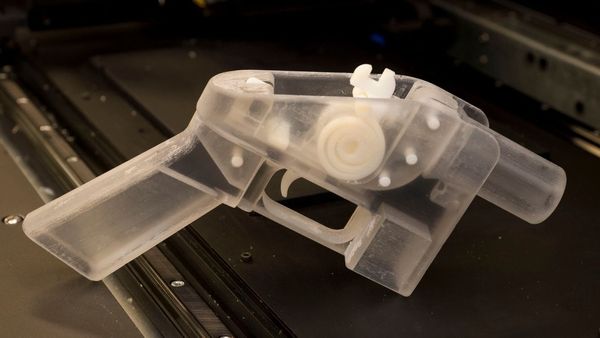
Fifteen minutes into an interview, as Jaylen Brown is deep into an explanation on the ways that sports can be a mechanism for control, Joe Mazzulla busts through a door inside the Celtics’ practice facility. “The most interesting man in the world,” barks Boston’s head coach. “Just look at this m---erf---er.” Mazzulla gestures at Brown’s outfit, which includes an oversized down jacket and jet-black sneakers, both from Brown’s 741 collection, the clothing line the 28-year-old launched last fall after having concluded that the eight-figure offers dangled by legacy brands weren’t for him.
In itself, that is intriguing. In the NBA, generating off-the-court income can be formulaic. Endorsement deals are the simplest: Sign with a major company, shoot a few commercials, blast out some posts on social media and zip over to China every offseason to hawk your merch. Brown did a deal like this in 2016, signing with Adidas before his rookie season, a partnership that ended in 2021. After that, he listened to pitches, rejecting offers before ultimately deciding to forge his own path.
The result was 741, a brand with a deeper meaning: In numerology, the number 7 represents spiritual awakening, wisdom and understanding, the 4 symbolizes hard work, stability and practicality with the 1 standing for new beginnings, creativity and independence. He’s poured millions of his own money into the company and takes a hands-on approach with product design.
Ask Brown why he went this route, or why he’s made any of the more interesting choices he’s made on his way to becoming one of the NBA’s top wing players, and he will seem perplexed by the question. “Why not?” Brown says. Why not take a scholarship from Cal, a college a long way from his hometown of Marietta, Ga., both geographically and culturally? Why not accept speaking offers from MIT, Harvard and Morehouse?
“I’ve never given the same speech twice,” says Brown. Why not challenge the system? It hasn’t hurt his game. He’s a perennial All-Star who added Finals MVP and an NBA championship to his résumé last June. He wants to beat Cleveland in the playoffs. He just wants to defeat wealth inequality in Boston, too.
“It’s who I am,” says Brown, shrugging. “It’s not like I developed this mindset. That’s just who Jaylen is. The more you get to know my upbringing and how I was raised and how I’ve always handled myself, even as a high schooler, that was just me. So if anything, I was just going to be myself throughout this journey rather than be an alternate version that made people feel better about themselves or play a game that people tell you to or be corporate. I’m just going to be, however it goes—good or bad or indifferent, I’m going to just be Jaylen.”

Sports Illustrated: Besides family members, who would you say has had the most influence on you, especially in your younger formative years?
Jaylen Brown: It’s probably a combination of historical figures, musicians, educators, activists.
SI: Who’s on that list?
JB: Martin Luther King, Tupac, Toussaint. When I was at Berkeley, I took a class called Student Activism. Professor [Hardy] Frye, who’s now passed away, was part of the student [civil] rights movement. He actually helped create African American Studies programs at universities. We would look at different activists in different periods of time and different places in the world and we would compare and contrast these movements with today’s times—their theories, everything.
For our final project, we had to create our own movement with a group of students. And you had to give your reasoning why it’s different from everything else, why it’ll work. Who’s going to fund it? All different types of stuff. So that was one of my favorite things. That was one of my favorite classes at Berkeley that I carry with me to this day.

SI: Education was important to your family.
JB: It was not negotiable. It was kind of the mindset. It was anything below an A, it was unsatisfactory. You needed to be trying your best. And maybe if my best would’ve only been a B, they would’ve accepted that, but that wasn’t my best. So they didn’t accept anything less than an A. I didn’t get a B until high school.
I fought [my family] a lot of times along the way, but my grandmother used to make me do school even during the summertime, which every student wishes to hear. So I had to do stuff, write book reports. I had to do all type of stuff in the summertime to try to retain or add on to the school year rather than be like most kids just playing sports or playing video games or whatever.

SI: You played basketball at Cal. But you could have played at a lot of places. You clearly wanted more out of your college experience.
JB: I’ve always looked at myself as an athlete and as an intellect just because of my educational background, the penchant for learning that my family instilled into me. So to find a university that could fulfill those two needs was paramount for me.
A lot of what I learned in my 10 months at Berkeley I still carry with me. I’ve given lectures on things that I learned there. Panopticism, dynamic normalization, social stratification, tracking, hegemony, things that people have heard me speak about are [things] that I was introduced to when I got to Berkeley.
SI: You were 21 when Harvard invited you to speak ...
JB: They slid into my DMs.
SI: How’d that come about?
JB: I did this crazy article when I was in my second year in the league. I’m talking to some guy who I thought was just a regular Boston beat writer. I had no idea. But he’s asking me all these questions about college and I’m giving him all these answers about stuff that I learned. It turned out he was one of the head writers for The Guardian. They titled the article, “Sports is a Mechanism of Control [in America]” and put my face right on the cover. It became controversial and viral that this young player who just had his life changed and just walked into a certain amount of wealth because of sports had made this statement saying sports is a mechanism for control—at 21 years old. It made people kind of interested.

SI: Did you agree with the article?
JB: I [did] agree with it. I was just elaborating from my perspective as a 21-year-old at the time, to give context. Some people took it as I was dissing sports—I’m talking bad about sports and sports are bad. But that’s not what I meant at all. I was just coming from my perspective, knowing that sports have helped me change my life, but also that sports play a role in keeping people distracted from what’s going on in the real world and how it plays its role for spectators, for media and in society to make you forget about some of the things that society is redefining.
“Sports have helped me change my life, but also sports play a role in keeping people distracted from what’s going on in the real world.”Jaylen Brown
SI: When it comes to apparel, the easiest thing for someone in your position to do would be to sign with a major company and collect a check. You didn’t do that. You started your own brand. Why?
JB: Why not? Look at the state of footwear right now. Working for the Players Association for the last seven or eight years, I listened to players and their strifes about some of the things they wish they could see better in the sneaker industry and the shoe companies, how there’s a lack of value, a lack of understanding. And companies have been cutting back deals like crazy in the last couple of years. The major brands have dialed back for whatever reason. They’ve cut guys’ endorsements; they just offer product now. And obviously guys feel some type of way about that, but what can they do?
So me having resources—and also [the way] my brain works to try to create solutions—I thought, I could speak about these things until I’m blue in the face or I can just try to create the solutions that you want to see in the world. And maybe my brand won’t be that, but maybe it sparks somebody else for theirs to be and for them to start the journey.
Because in 2025, I think things can look different than they have in the past, with athletes being able to create some of their own brands and have ownership—we’re already starting to see that in other sports.
Rover: Black Moon
— 741Performance (@741Performance) January 24, 2025
A black moon is a super rare occurrence when there are 2 new moons in a single calendar month. This phenomenon boosts manifestation, and spiritual intention; thus, signifying creation and new beginnings
Shop now. Link in Bio pic.twitter.com/gwf7idhDWL
SI: You had a pretty public feud with Nike last summer. You said back then you would share your story someday. Do you want to share it now?
JB: I’m sharing it now.
SI: The conflict with Nike?
JB: Conflicts with the sneaker industry, conflicts with athletes being viewed as dumb jocks.
“I could speak about these things until I’m blue in the face or I can just try to create the solutions.”Jaylen Brown
SI: So it’s all intertwined.
JB: It is. The industry has definitely cut back its funding and its resources towards athletes for whatever reason. The creativity has been a little bit dulled and the athlete’s value isn’t being reciprocated or respected in today’s time. Obviously, a few athletes are getting the luxury of having great deals, but you can list those on both hands. So trying to create solutions or other ideas and show other athletes that you can take things into your own hands, create your own brands, create your own companies, I think gives the power back to the athlete.
And if you still want to go sign with Nike or Adidas, no problem with that. But the fact that those are the only options and they kind of dominate the market is a part of the frustration that has grown among players because these are the options that you have and they all kind of stick together. They all give you the same kind of deal, and you have to accept it or not. O.K., if it doesn’t work for you, then what? What do you do? So I’m trying to show athletes that you don’t have to wait around if you don’t want to.

SI: USA Basketball has denied it, but do you still think your issues with Nike cost you a spot on the Olympic team?
JB: For sure. One, I think sneaker industries, and I’ve said this before, have way too much control over the basketball foundation. In youth sports, it’s the same. Kids are having to worry about even playing with Nike, playing well on the Adidas circuit. And they should just be working on developing their basketball skills. Instead, we’re focusing more on shoe politics, and I think that is why the rest of the world has caught up. And if we don’t do something about it, the next Olympics and the next global outings are going to look a lot different.
SI: You’re 28. You have a championship, you have been an All-Star, All-NBA. You have one of the biggest contracts in NBA history. What keeps you motivated?
JB: The next generation. Leaving behind a legacy that’s better, that’s more improved than it is now. Just having athletes think differently in the future, having athletes understand their value, having athletes encouraged to be able to create their own brands and to take their ownership back and see themselves as thinkers, CEOs, not just jocks that entertain people for a living. To see themselves as more evolved athletes, as a more evolved human beings, as people in their community—and to take the responsibility in that rather than just being told to just focus on basketball or focus on sports or focus on entertainment and everything else is whatever. No, you’re the talented one. You have the God-given ability. You’re the one in control. So just [for athletes] to understand that and to think for themselves.”
SI: You have gone through a lot in Boston. Your selection was booed on draft night. You’ve been in trade talks almost every year. How challenging has that been?
JB: Very, very challenging, to be honest. Things have not gone my way. I haven’t been catered to, in a sense, which has made me stronger. I think it has made me a better player, has driven me. I can complain, but in reality, it made me the best. So I’m grateful for it. Even if it was indirect, I know that it wasn’t intentional. It is what it is. It made me better. I know there were a lot of people who didn’t believe I would be in the position I am now. Some were in this building, some are no longer here, but I am. So I’m grateful, that’s how I would describe it.

SI: Sounds like you’ve used a lot of that skepticism as fuel over the years.
JB: Yeah, and I still do. I still think I have ceilings to reach. I don’t feel like I’ve reached my ceiling. I still feel like there are things that I am still developing and I’m still working through with this organization, but it’s no problem. And this is what I want the youth to hear. There’s nothing wrong with being a part of a team and being a part of something bigger than yourself. Winning the championship was one of my goals and it brought me so much joy to be a part of that. I would just say there’s no problem with being that.
I’ve made sacrifices. I’ve watched things happen. A lot of stuff has transpired in this organization and I’ve understood it. I didn’t complain—I didn’t have an agent call and complain the way some of other guys do. I just let it make me better, and it fueled me and it’s still fueling me now. So this is just a beginning for me. And I’m so invested in learning. I’m so invested in getting better and improving. It is fun to do. It’s fun to do.

SI: You are also invested in this city. One of the things you did after you signed your $300 million contract was launch the Boston Xchange to tackle the wealth disparity in the city. What was your motivation?
JB: Wealth disparity is something that isn’t talked about enough, how it was created through systemic inequality. And even though things are a lot different today, some of the initial foundations of systemic inequality still exist and have set marginalized people back. So to be able to find instances to still speak to that and then give opportunities to those who weren’t privileged to inherit them is something that I spend my time, effort and resources on.
I think a lot of times [athletes] have people thinking for them who just say to focus on basketball or whatever. And once again—you are people of influence that come from your community. You are educated, you have a high responsibility. Even though people tell you that you should not accept that responsibility, I believe you should. I don’t think basketball is just about being a star player and just about the cars, the clothes, the money or the attention. It’s also about responsibility. But I feel like the people who are around players—the agents, etcetera—[can make] the overall narrative that you should be more focused on these things.
The influence is pushing them [to think] that that’s the most important thing. You get praised for doing those things, but you don’t get praised, you don’t get nearly as much attention for doing what’s right in your community. And that can sometimes confuse the minds of our young athletes because obviously we put them on a pedestal.
I think they should be celebrated more for what they do in their community rather than them being on TMZ or who they’re dating or what kind of car they’ve got. I just think society is backwards.
This article was originally published on www.si.com as Jaylen Brown Is Redefining the Role of Sports.







